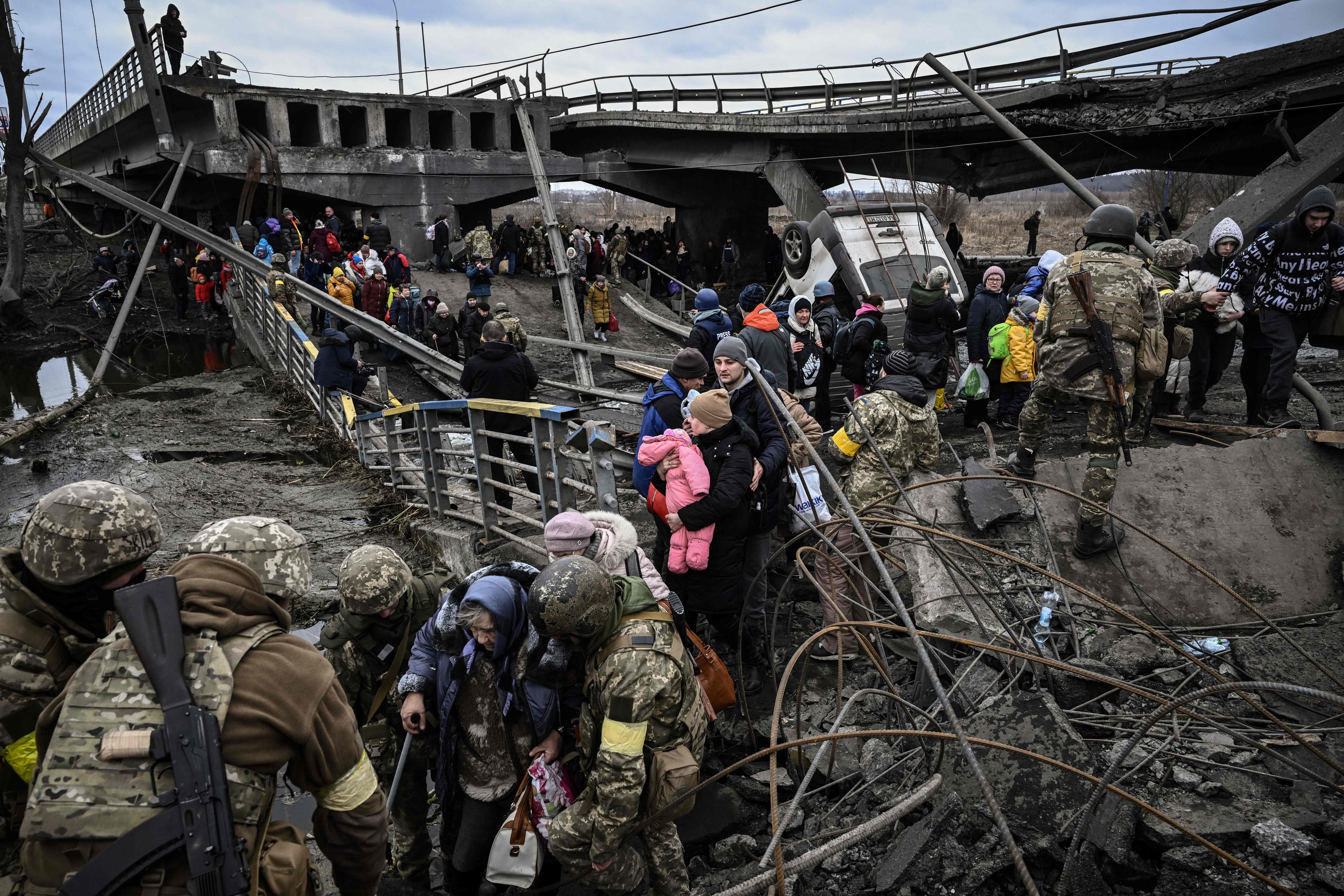The new declaration on bombing urban areas is vital – but does it go far enough?
In my experience, the sad truth is that towns and cities are very often the main theatre of violence and bloodshed, writes Bel Trew


It has taken nearly three years and the text has been disappointingly watered down but on Friday the UK, the US and a slew of other countries across the world agreed to sign a political declaration that, if implemented properly, will save thousands of civilian lives.
Although not legally binding, the declaration – the first of its kind – commits signatories to avoid using explosive weapons, like aerial bombs, rockets, artillery projectiles and missiles, in urban settings because they have such a devastating impact on local populations.
According to the UN, more than 90 per cent of globally reported civilian casualties each year are the result of the use of explosive weapons in urban areas. Data from the Explosive Weapons Monitor shows that more than 5,000 civilians have been maimed and killed due to this during 2022 alone.
International law by itself has in the past proven to be woefully inadequate. Powerful bombs wiping out dozens of people can, in theory, be legal if, for example, the strike is deemed proportionate and aimed at a legitimate military target.
Even the introduction of precision weapons hasn’t reduced civilian casualties over the years. This is why further action is needed to prevent more deaths. Hopefully, the declaration will be a good first step towards that and will start to make it taboo to bomb packed neighbourhoods senselessly. Countries should now think twice before they decide to do so.
Not bombing heavily crowded neighbourhoods is something of a no-brainer to so many of us non-combatants but the sad truth is that towns and cities are – in my experience – very often the main theatre of violence and bloodshed. In fact, in more than a decade of covering conflicts from Gaza to Ukraine, some of the most horrific incidents I’ve witnessed have taken place within the confines of urban warfare.
Communities are carved up into these deadly fiefdoms, sometimes just a single block long. Residents are forced into a sudden coexistence with the whims of the monster of war, raging through their lives and livelihoods almost arbitrarily. Families very often find themselves on the wrong side of a river or neighbourhood or even building. It might be just two streets but it’s also an abyss, a gaping chasm between themselves and safety. They cower under a hurricane of fire and shrapnel that is only amplified by the crowded proximity of the topography – the buildings around them.
And that is why the declaration is a good first step. But it isn’t enough. The issue is the wording, which includes phrases like “where feasible” and “where appropriate”. This gives states convenient wriggle room out of those commitments. The pledge itself only promises to avoid using these weapons in this context and so, while positive, we, as citizens, need to insist on more, on stronger language, on more concrete terms.
As Emily Tripp, director of monitoring group Airwars tells me, there also needs to be more clarity on how the vague language is put into action. “For the declaration to be properly implemented it will require states to create and improve national policies to honour these commitments – including on civilian harm-tracking and information sharing,” she said.
There needs to be some kind of agreement on how this is enforced, what that looks like, and what the exact weapons that should not be used are, she added.
To keep up to speed with all the latest opinions and comment, sign up to our free weekly Voices Dispatches newsletter by clicking here
But more than that, the declaration would be upgraded to a convention, making it far more enforceable. A good example is the convention on cluster munitions, a horrifically indiscriminate weapon that rains dozens if not hundreds of bomblets across an area the size of a football pitch. The bomblets often do not explode, morphing into land mines.
The convention – which came into force in 2010 – requires signatories not only to stop using cluster munitions but also to clear areas contaminated by unexploded cluster munition remnants within 10 years of signing. Since it was enforced, according to rights groups, there have been major advances for the protection of civilians, both during and after armed conflict.
In fact, Human Rights Watch confirms there have been no reports or allegations of new use or production of cluster munitions by any party to the treaty.
Imagine if there was a convention banning the use of explosive weapons in populated areas. Think about just how many civilians could be saved. I hope this declaration is a first step on the long road towards that goal. And the first movement towards thousands of lives being spared.






Join our commenting forum
Join thought-provoking conversations, follow other Independent readers and see their replies
Comments